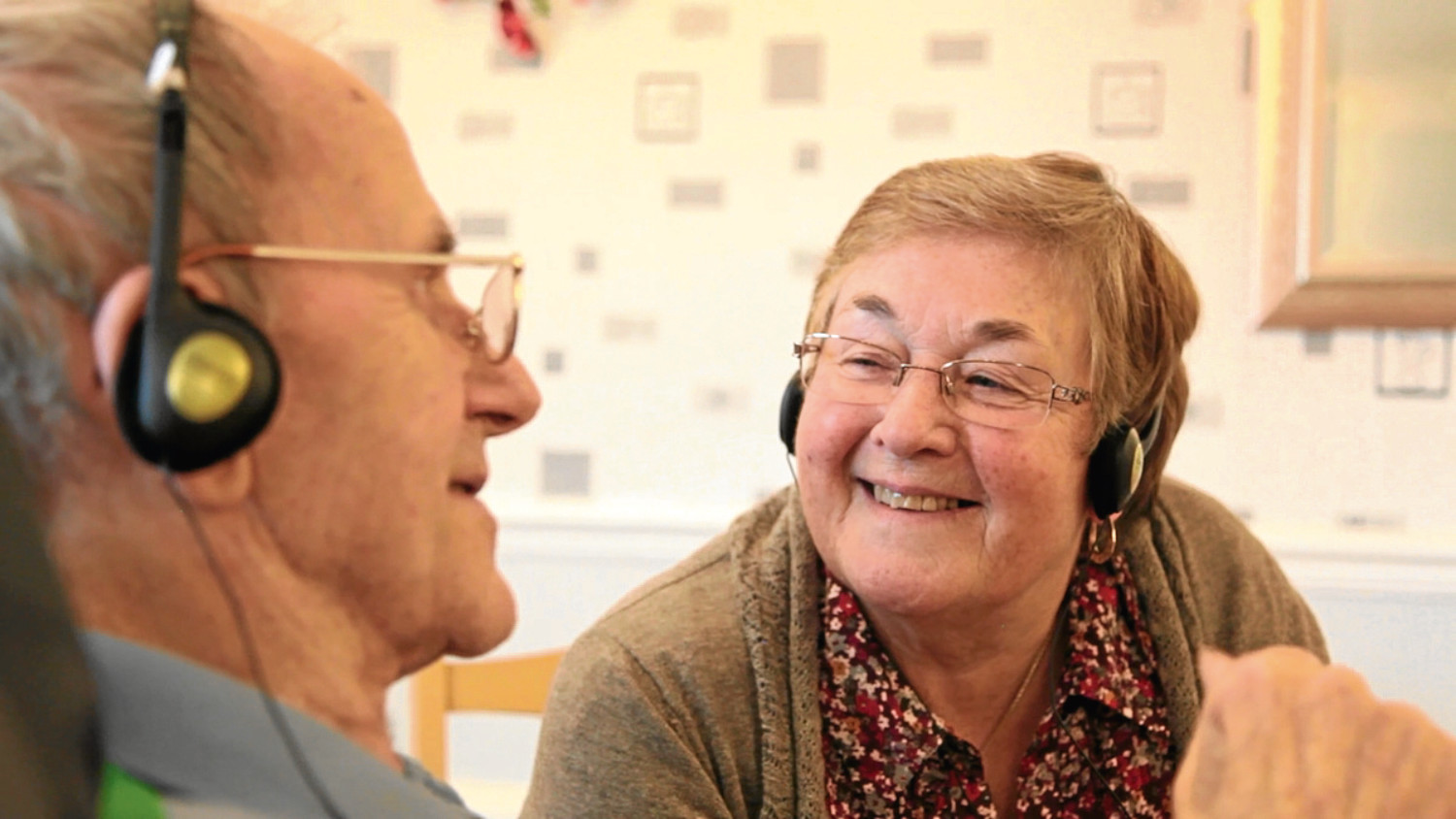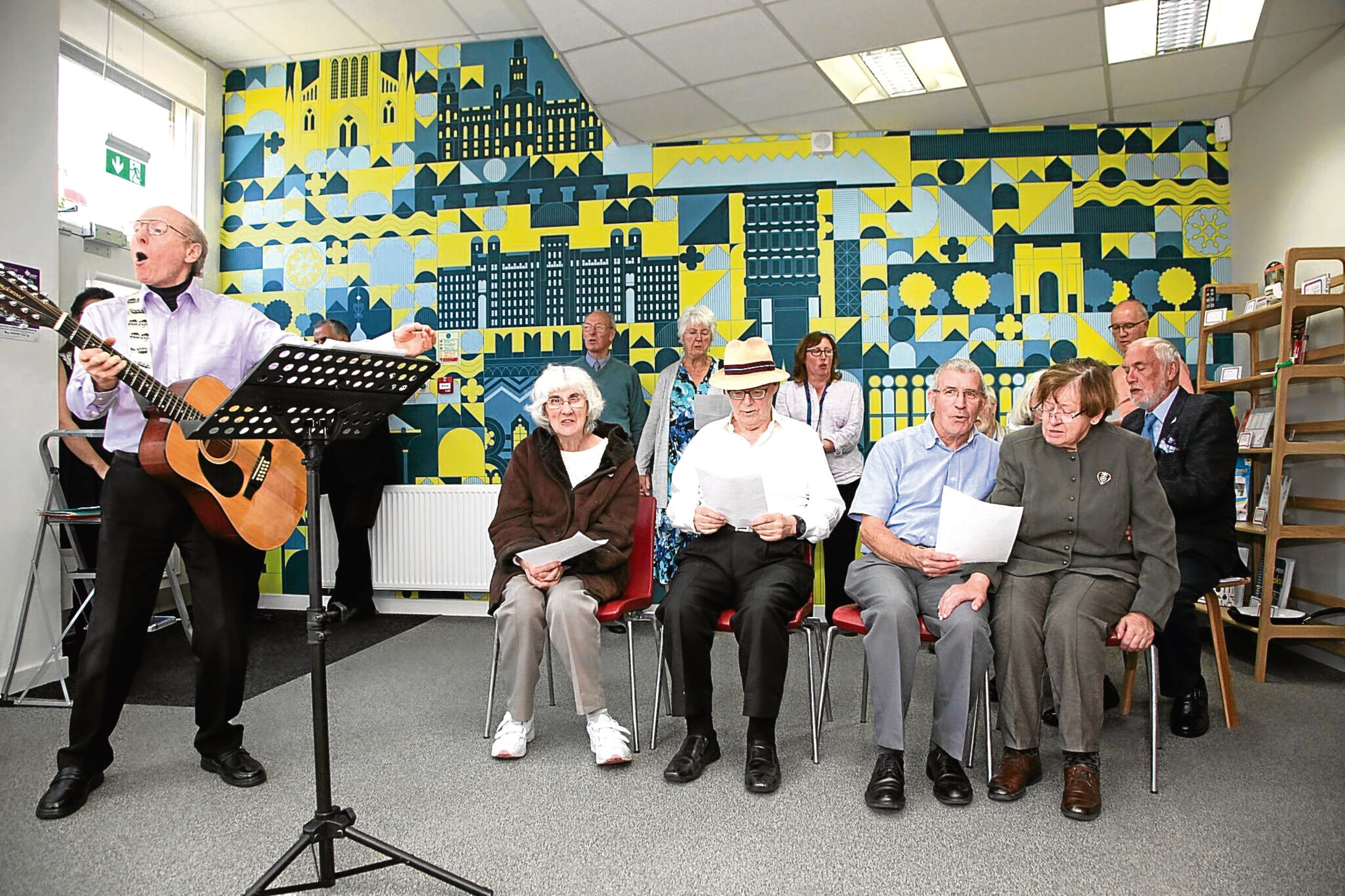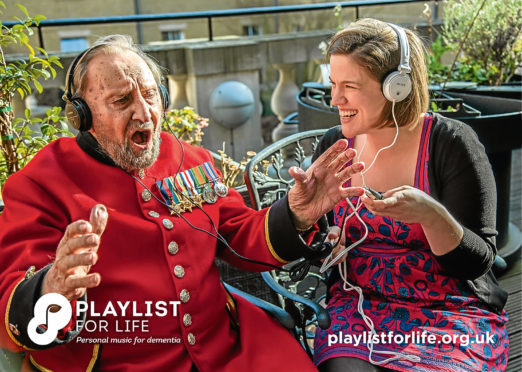Everyone has a song or a collection of tracks which has perhaps seen them through some of the toughest periods in life. From music discovered during teenage years right through to songs carefully chosen for the final goodbye at funerals, music has the power to evoke emotion and define people across the decades.
Old records played on a gramophone from the dance halls of youth, or the latest number one repeatedly blasted on an iPhone – no one person’s taste in music is the same.
Our choice in music can stand as the only thing we have left in times of crisis – a reminder of who we were and are.
An echo of the past represented through a previously forgotten melody can have a particularly poignant impact on those faced with dementia.
There are 850,000 people living with dementia in the UK, with numbers set to rise to one million by 2025.
There is currently no cure for the cruel disease.
But both sufferers and their loved ones have been offered a glimmer of hope.
A national charity believes it has found a way in which sufferers can rediscover themselves, if only for a few minutes. Music has been shown to have a dramatic effect, by reaching parts of the brain in ways that other forms of communication cannot.
Playlist for Life was set up four years ago and has helped thousands of people face their diagnosis through music.
The charity trains healthcare professionals in the use of music.
It also helps people put together their own personal playlist, which can often provide a great source of comfort.

The charity hopes that by 2020, every person living with dementia will have access to a playlist.
The team behind the concept are based in Glasgow and, although the charity helps people across the UK, there is particular focus on isolated areas such as the Outer Hebrides and Western Isles.
Co-founder Andy Lowndes has already visited Lewis and plans to make a return trip to Benbecula next month.
He also hopes to reach Orkney this year, as well as particularly rural areas in Aberdeenshire.
Andy, a former mental-health nurse, is now deputy chair of the charity and refers to himself as the music detective.
He has made it his mission to help dementia sufferers reconnect with music from their past.
There are even plans to set up 150 information centres across the UK.
The centres will enable people to find out more about Playlist for Life.
It is hoped the initiative will help those who are unfamiliar with the technology needed to access music in the first place.
Andy believes it is never too early to put a playlist together, as it can stand as the only link between a person and their memories.
ANDY LOWNDES: WHEN MUSIC IS PLAYED, MAGIC CAN HAPPEN
“I was approached about using music to help people with dementia almost five years ago by broadcaster Sally Magnusson.
“I’m a former mental health nurse and academic.
“Sally had heard about the work I’d already done.
“She told me about her mum, Mamie, and the family’s experience with Mamie’s dementia. They had managed to care for Mamie at home and they found the use of song really helpful.
“They played music which had been the soundtrack to her life.
“When Mamie became particularly distressed or confused, her family would sing to her. Although she was unable to communicate in ways which her family understood, she was still able to remember the words to songs.
“This enabled Mamie to communicate with her family and to herself, because each song had a memory attached to it.
“Music became a means of making a very difficult journey that bit easier.
“Sally asked me if this was sheer luck or perhaps music could be used to help others. I said there was no perhaps about it and we got to work founding the charity straight away.
“I took it upon myself to become a music detective and help people rediscover the music of their life.
“Now I train other people in the health profession to do the same.
“Music has the power to be autobiographical.
“It reminds us of who we are and can be more effective than any nursing plan.
“There have been 250 failed drug trials in a bid to find a cure for dementia.
“We don’t hear about that many success stories but music is a means of providing an intervention.
“Last year it struck me that isolated areas may not have access to such interventions, which are naturally more available on the mainland.
“I put some feelers out about visiting the Western Isles on social media.
“The response I received was incredible and the post had something like 23,000 views. So many people got in touch and gave me recommendations of places to visit.
“I told myself I wanted to deliver 650 leaflets about Playlist for Life on the Western Isles.
“Rather than stay in B&Bs, I decided to get a camper van and off I went like Scooby Doo.
“I got the ferry from Oban to Barra last September.
“I visited a care centre in Barra and the atmosphere was wonderful.
“If I’m going to grow old and develop dementia, Barra is where I want to be.
“I think it was so different from any care home found in a city, because everybody knows each other in Barra.
“Your memories are their memories so the essence of who you are is not forgotten.
“I started playing country and western music and then I played Gaelic songs.
“It was mostly women in the care home and they started to sing.
“I turned the music off and they just carried on because they remembered the words.
“It felt like they were singing to me and it was very emotional.
“I handed leaflets out at GP surgeries to get the message out there.
“When you are living with dementia, music can be a lifeline.
“I would urge people to write their playlist down somewhere, even if you don’t have dementia.
“Music might be played in a care home, which is lovely. But there’s every chance it won’t be your music.
“A list of songs can provide a reminder of who you were and are, even if you aren’t able to tell others explicitly.
“If you were to scan the brain of someone who has dementia when they are listening to music from their past, you would see a virtual firework display going on.
“This is because of the proven neurological benefits.
“Music can help people find a part of themselves which would otherwise be lost.
“I’m returning to Benbecula next month to train people in the use of music with dementia sufferers.
“I’d also like to visit the northern islands, the Borders and Aberdeenshire.
“That’s the plan for this year.”
Playlist for Life has already made a major impact in Moray, where libraries across the region have signed up to the scheme.
Principal librarian for Moray Council, Sheila Campbell, believes it was a natural progression after libraries were awarded Dementia Friendly Status by Alzheimer Scotland two years ago.

“Playlist for Life was another piece of the jigsaw as staff were already trained in dementia awareness,” said Sheila.
“This included how to respond to someone who may have dementia.
“All our libraries are involved from Cullen to Fochabers.”
Reminiscence boxes are also in place at libraries and contain material which can act as a trigger.
“We have a collection of artefacts from across the different eras and 20 members of staff have been trained by Playlist for Life,” said Sheila.
“They found the training incredibly moving and it has been very popular with the community.
“Some of our local care homes have taken up the offer of training for their staff as well and the rotary clubs have been very supportive.
“All our libraries are now information points for Playlist for Life.
“Recent research has shown that our visitors are inter-generational, so we get the whole family passing through at some stage.
“This means we’re reaching as many people as possible.
“I know I want to put my own playlist together, rather than rely on others to guess the music I might like.
“It’s never too early to start.”
Alzheimer Scotland has recognised the importance of music through its musical memories groups, which have risen in popularity in recent years.
Community activity organiser Sharon Findlay believes the groups are a means to help people socialise.
“We run one group in Elgin and one in Buckie,” she said.
“Our Buckie group has been running for about nine months after people heard about the Elgin group.
“Up to 20 people attend and we sing a variety of songs.
“Hymns, musicals, pop songs from the Sixties.
“It enables many people to reminisce.
“Quite often, the emotion it can inspire in people will stay with them for days afterwards.
“They may not be able to remember attending a session but that feeling of happiness won’t disappear straightaway.
“The daughter of one lady who attends said her mum came home as high as a kite.
“It provides respite for carers and people across both our groups have bonded incredibly well.
THANK YOU FOR THE MUSIC
Music seems to be unique in the way that our brains store and process it.
Our ability to hear is the first sense we develop in the womb and the last to leave us when we die.
Music doesn’t just affect one part of the brain.
In fact, a scan of the brain of someone listening to music shows neural activity in lots of different places including those responsible for memory, emotion, hearing, language, rhythm and physical co-ordination.
Music, emotion and autobiographical memories come together in an area of the brain called the pre-frontal cortex, connecting with many other parts of the brain.
So, even if dementia is damaging one part of the brain, that “flashback feeling” music can still reach other parts, almost “getting in the back door” to tap memories and even abilities that were thought lost, restoring a sense of self in a world that is increasingly alien.
Music can:
l Bring back feelings, memories and sometimes even abilities thought lost;
l Reduce the use of heavy drugs and restraints;
l Manage mood and emotions;
l Strengthen relationships, reconnect families and support new connections.
Personal playlists are a cheap, simple and powerful way to harness the power of music to make living with dementia easier and happier.
l For more information about Playlist for Life visit www.playlist forlife.org.uk or call 0141 404 0683.
